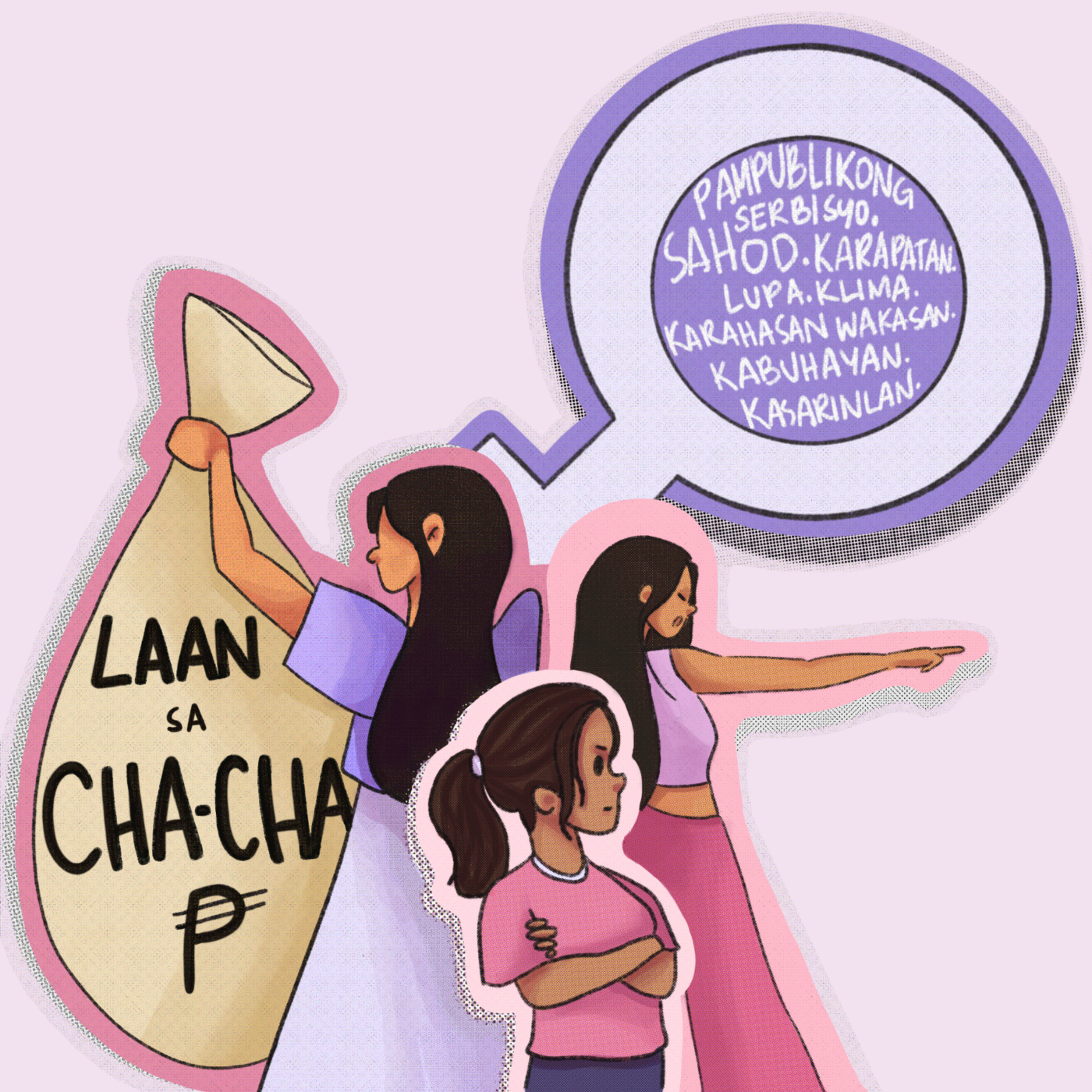IN A resolute stand, women’s organizations have rejected charter change, alleging that constitutional amendments geared toward economic growth have taken precedence over economic justice for female workers. With this, collective movements persist to ensure that any amendments to the 1987 Constitution uphold and advance the rights and well-being of female workers.
However, among these efforts, the unprecedented advancement of the current charter change initiative raises questions about the capacity of these amendments to address the concerns of women.
Unpacking inequality
The Philippines stands out among developing nations for its relative gender equality, boasting legislation such as the Safe Spaces Act and the Anti-Violence Against Women and their Children Act of 2004. These existing safeguards serve as both a cause for celebration and an opportunity for nuanced discussion regarding areas that need further improvement for the welfare of Filipino women.
From healthcare access to fundamental legal equality, the foundational elements for women’s economic empowerment warrant careful examination. Despite achieving parity in educational attainment and literacy rates, women still encounter significant obstacles in the economic sphere such as unequal pay for equal work, limited access to leadership positions, and the burden of unpaid care work. Gender-based violence and systemic biases ingrained in the economic system further exacerbate these challenges, leaving women vulnerable to exploitation and marginalization.
According to Political Science Associate Professor Anne Lan Candelaria, PhD, inadequate defenses against these inequalities have crippled women’s ability to compete with men in the workforce. Such inadequacies stem from patriarchal norms, which have perpetuated barriers such as unequal caregiving expectations. Compounded by deficiencies in policy implementation, working women remain systematically disadvantaged compared to men.
The issue of gender disparity persists globally, particularly in entry-level jobs, where women are delegated tasks according to gender biases. “Roles that would require more empathy and people-to-people skills are given to women, while roles that require negotiation in the boardroom are given to men,” Candelaria said.
Amid this continued dearth of support and capacity-building opportunities for Filipino women, 17 prominent women’s organizations joined forces last March 8 to protest the push for charter change. They urged the administration to prioritize initiatives addressing women’s welfare over prioritizing charter change.
Towards gender parity
The proposed constitutional revisions heavily revolve around the idea of opening the economy to foreign capital, allowing other nations to have access to and invest in the country’s productive assets.
According to Vice Chairperson for Women’s Affairs of Kilusang Mayo Uno Joanne Cesario, the government should prioritize addressing gender inequality, particularly the gender wage gap, as doing so could increase the country’s active workforce and gross domestic product. In comparison, opening the economy would inevitably affect the country’s distribution of resources and exacerbate unresolved issues such as low wages, which continue to plague millions of underpaid women workers.
Calling for the improved welfare of women workers in the country, women’s organizations have developed an eight-point agenda for economically disadvantaged female workers in the labor market. The women’s agenda comprises providing female workers with living wages, appropriate jobs, sources of livelihood, land property for farmers, protection of rights, maintained sovereignty, and protection from harassment.
Despite their efforts, their concerns are constantly disregarded by those in power due to the lack of representation for women in political institutions. Based on a study by the Philippine Institute for Development Studies, the proportion of female senators has only ranged from 3 to 6 out of 24 seats since 2001—not all of whom directly advocate for gender parity. This weak substantive representation in political bodies can be attributed to the country’s faulty electoral system, strong patriarchal culture, and the instability of existing political parties.
According to Candelaria, increasing female representation in institutional spaces is crucial to provide an avenue for their voices to be heard in making policies for their welfare. “We should increase the participation of women in political spaces [by] putting more women in Congress, in the public sector, and putting women in the opposition,” she emphasized.
Candelaria further expressed that protecting women’s rights necessitates sustained discourse and collective action among different organizations and groups to ensure the political engagement of women in the country.
Essentially, charter change could heavily impact the welfare and quality of life of women workers in the Philippines. The discourse surrounding the proposed amendments emphasizes the need for providing women with equal opportunities and pushing for political representation advancing female empowerment.




